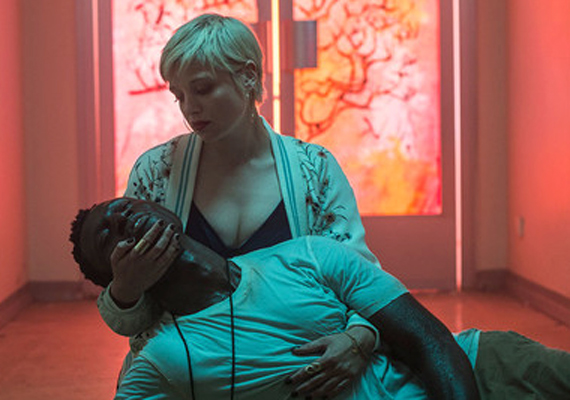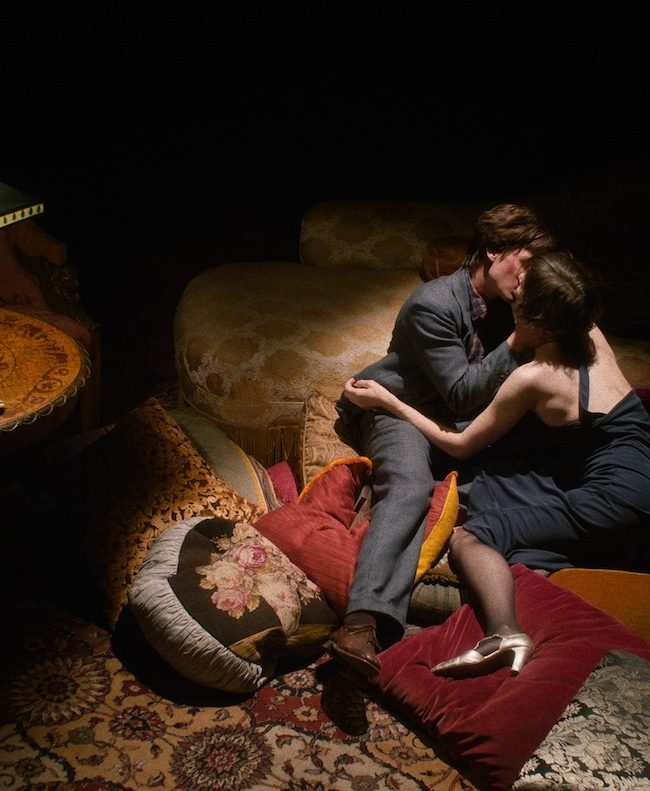BERLIN ALEXANDERPLATZ

(Director Burhan Qurbani takes on Alfred Döblin’s novel Berlin Alexanderplatz giving it a modern tone. The film is playing film festivals now, most recently at the Vilnius International Film Festival. Like what you see here on Hammer to Nail? Why not give just $1.00 per month via Patreon to help keep us going?)
Alfred Döblin’s Berlin Alexanderplatz was a modernist novel about the working class during the Weimar Republic. The novel’s avant-garde narrative style told the story of a city, its underbelly, and the dark political forces that were gaining momentum in Germany. Director Burhan Qurbani’s (We Are Young. We Are Strong.) Berlin Alexanderplatz is a contemporary adaptation of Döblin’s novel. We enter Berlin’s underworld through the vehicle of Francis (Welket Bungué).
Francis is an immigrant from Guinea-Bissau who must quickly adapt and hustle to survive. We are given hints about his life in Guinea-Bissau: He is still “dripping with sins of the past.” His arrival in Germany; however, gives him an opportunity to start afresh. Francis puts it in simple terms, “I want to be a new man, a decent man.” Francis goes from backbreaking physical labor to meeting a slithery midlevel drug dealer named Reinhold (Albrecht Schuch). Francis becomes his right-hand man. Reinhold instructs Francis in the mechanics of crime and uses Francis to prevent Reinhold from taking his psychopathology of hurting women to its ultimate end. Francis and Reinhold jump from woman to woman, inflicting on them all sorts of violence and degradation, until Francis meets Mieze (Jella Haase). When Reinhold discovers Francis’s love for Mieze, a twisted triangle of jealousy and violence is formed.
Berlin Alexanderplatz presents its grittiness in stylized neons and pastels. The film jumps from stereotype to stereotype. Every sex worker in the film is made into a ready-made recipient of sadistic violence. Business meetings are conducted in either strip clubs or dance clubs wherein debauchery is conveyed by way of thumping music and mesmerized dancers. Mob bosses display their power by inflicting pain on subordinates. If the intent was to make the viewer empathize with Francis and his struggle as an immigrant, the film fails. Francis is a blank slate. He conveys little emotion even when trying to show emotion. The film places Francis in the middle of a Manichean struggle; but this Manichean struggle is portrayed in a simplistic manner. In one scene, Francis’s tug-of-war between sin and decency is portrayed using simple metaphors. The scene employs a neon crucifix juxtaposed with a bull and a Euro with Reinhold’s phone number scribbled on it. The fork in the ethical road is not at all subtle.
Berlin Alexanderplatz tries to inject tragedy into Francis’s immigrant experience. There are important threads running through the film – the invisibility of the immigrant, the danger of assimilation. Francis attempts to assimilate by way of the few avenues available to him – degrading physical labor and crime. He declares, “I am the German Dream.” He lists all the makers that signal his identification as a German – he drives a German car, has a German girlfriend, makes his own money within the German economy. All that is fine and meaningful, but then the film once again cuts to more scenes of violence against women. The viewer has to grind through a nearly three-hour film with characters that inspire no more than a shoulder shrug and violence directed at women that inspires a brow raise. Döblin’s novel deserved better.
– Ray Lobo (@RayLobo13)










